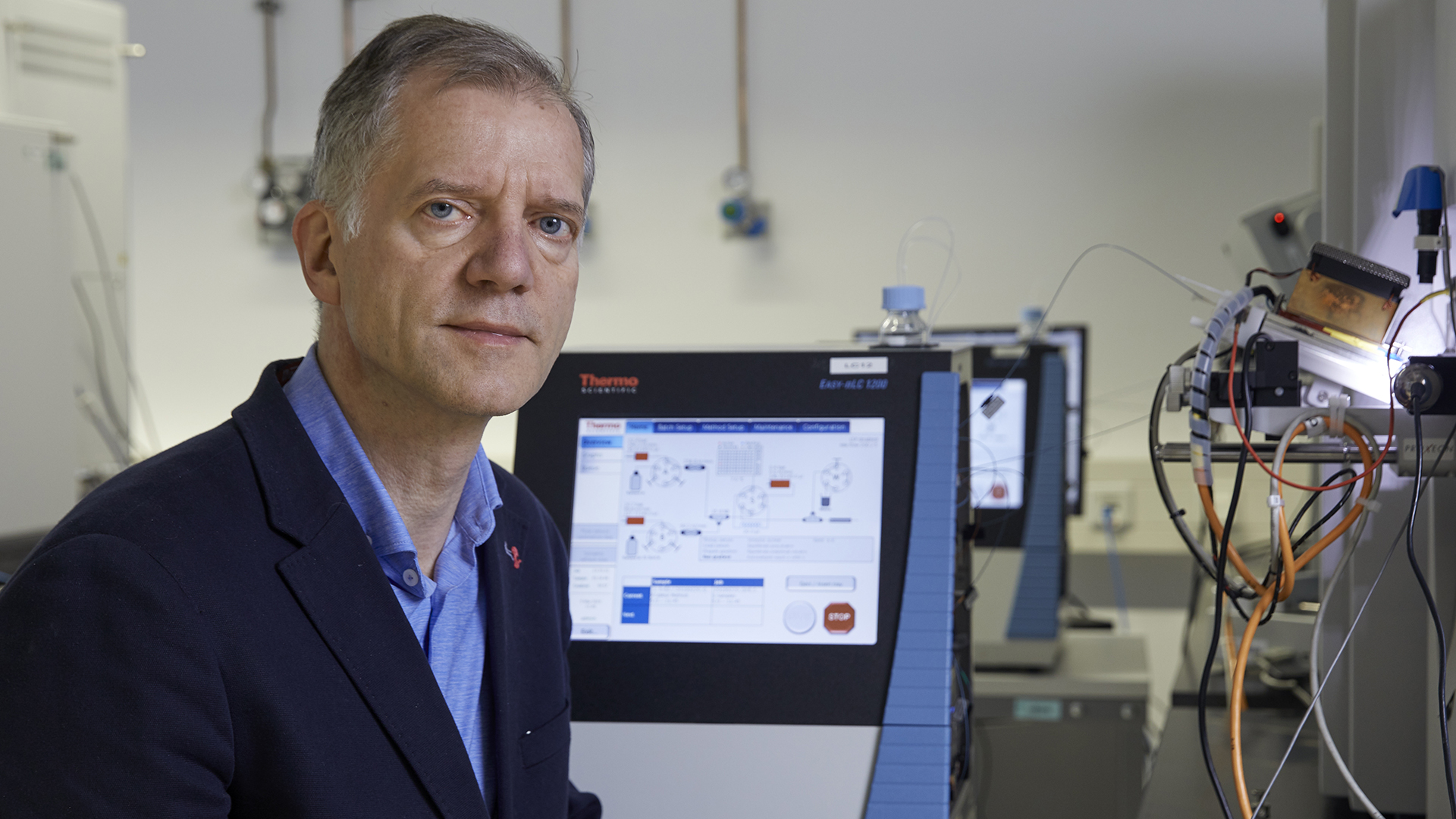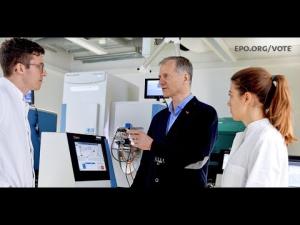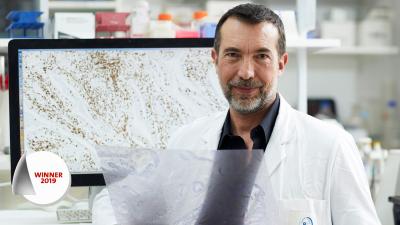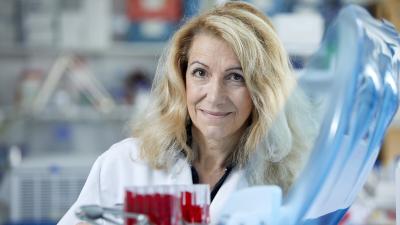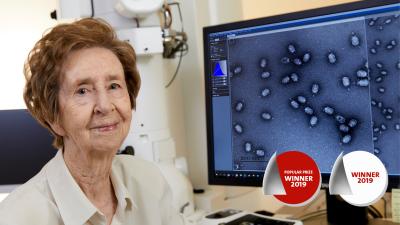Matthias Mann
Protein analysis to diagnose disease
Finalist for the European Inventor Award 2019
Each person's body responds in its own way to diseases and medication, meaning that clinicians can misdiagnose patients and administer the wrong kind of treatment. Misclassification can ruin treatment outcomes or subject patients to unnecessarily harsh drugs. Mann, a cross-disciplinary scientist, believed that the problem could be solved by paying closer attention to the proteins within a patient's cells - an idea that has unlocked the new scientific field of proteomics.
In 1994, Mann patented a new technique that quantifies all proteins present in a biological sample. His technique, called nano-electrospray, is used to extract proteins from human cells before interrogating and identifying them. To do this, the process vaporises the proteins after their extraction and charges them electrically. Once charged, the mass and identity of each protein can be inferred from how far it is deflected in a magnetic field. Thousands of proteins are simultaneously sequenced and, all of the processes taking place inside each of the patient's cells are mapped out. By understanding the unique combination of proteins at work inside a patient, doctors can create personalised treatments that are both precise and effective. In 2012 Mann described an addition to the technique called SILAC (Stable Isotope Labelling by Amino acids in Cell culture), in which carbon atoms are replaced with a heavier isotope, altering the mass of a protein and making healthy cells slightly heavier than diseased cells. This labelling means that cells can be used to quantify protein concentrations and improve the precision of the process. Mann has now filed 36 patents worldwide to make his breakthrough more powerful and user-friendly.
Over the past two decades, protein censuses have provided researchers with unprecedented insight into the onset of diseases and pathways towards treating them. This technology is already helping to identify elusive medical conditions such as breast cancer and fatty liver disease. The information it provides could also reveal the causes of poorly understood diseases by identifying "biomarkers" and finding new treatments for them. Motivated to commercialise their work, members of Mann's research group at the Max Planck Institute of Biochemistry in Germany launched a spin-out startup called PreOmics. By licensing Mann's patents, the company has developed a kit for non-specialists to prepare samples for proteomic testing. Despite being in its infancy, the company posted a turnover of EUR 550 000 in 2017 and has already created 12 jobs.
Alongside his work at the Max Planck Institute of Biochemistry, Mann also directs research groups at the University of Copenhagen in Denmark. He has authored over 700 peer-reviewed publications and is one of the most widely cited researchers in the world. He credits his interdisciplinary success to curiosity. As a scientist, he says that he was taught not to be afraid of jumping into areas that he knows little about. While Mann remains fascinated by fundamental science, he now focuses on bringing his inventions closer towards clinical applications.
Media gallery
Contact
European Inventor Award and Young Inventors Prize queries:
european-inventor@epo.org Subscribe to the European Inventor Award newsletterMedia-related queries:
Contact our Press team#InventorAward #YoungInventors
